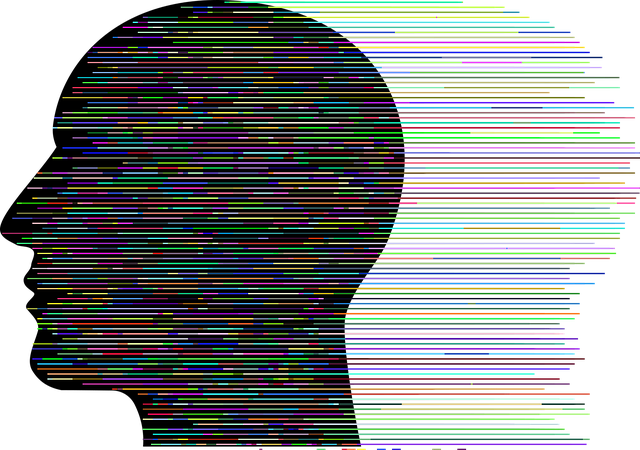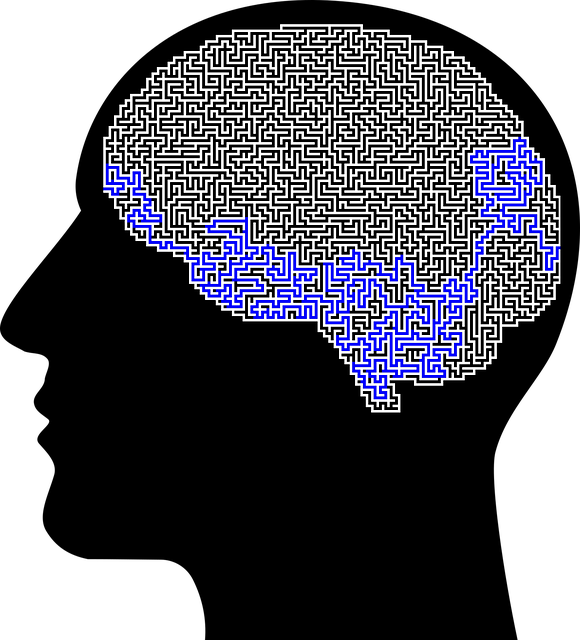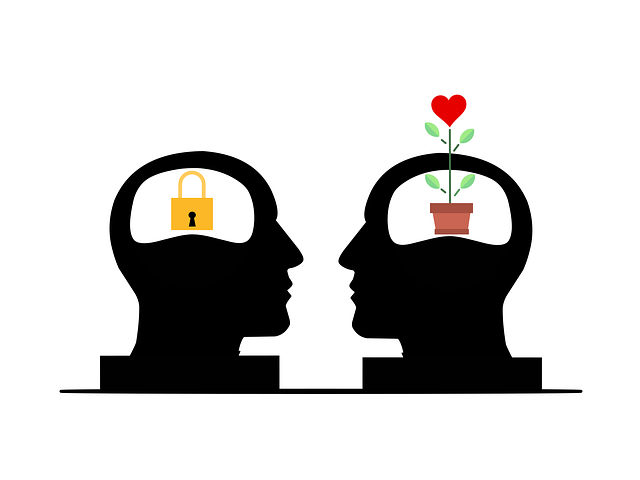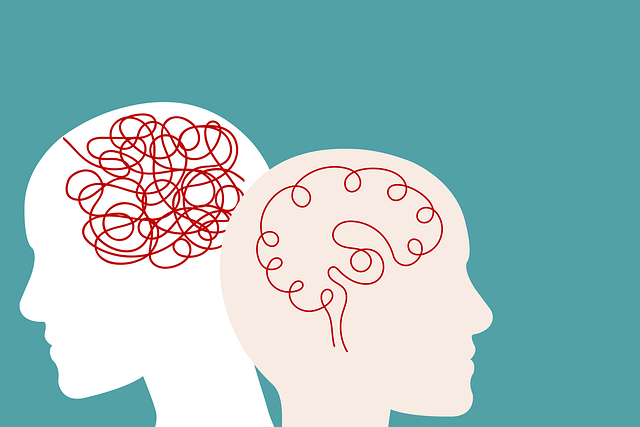Mental wellness apps, incorporating evidence-based practices like Compassion Cultivation and Mind Over Matter, offer personalized solutions for stress management and conditions such as Lakewood Functional Neurological Disorder (LFND). These apps provide comprehensive trauma support through interactive features, gamification, and community forums, fostering a sense of belonging and encouraging consistent engagement in healthy habits. An optimal LFND therapy app combines tailored treatment plans with mindfulness tools, meditation guides, CBT techniques, and progress tracking to enhance mental resilience and quality of life. Development involves a meticulous process including user needs assessment, collaboration between psychology, neuroscience, and software experts, integrating evidence-based techniques into intuitive interfaces while prioritizing data safety, and continuous refinement based on user feedback. Effective marketing strategies, leveraging social media for Mental Health Awareness and targeting diverse communities, are crucial for their success.
Mental wellness apps have emerged as powerful tools in addressing various mental health concerns, including Lakewood Functional Neurological Disorder (LFND). This article explores the significance of app development in enhancing LFND therapy and improving overall mental wellness. We delve into key features that make an app effective, detail the step-by-step building process, and uncover innovative marketing strategies to engage users actively in their journeys towards better mental health.
- Understanding Mental Wellness and its Apps
- Features of an Effective Lakewood Functional Neurological Disorder Therapy App
- Development Process: Building a Therapeutic Digital Platform
- Marketing and User Engagement Strategies for Mental Health Apps
Understanding Mental Wellness and its Apps

Mental wellness apps have gained significant traction in recent years, addressing a wide range of issues from stress management to more specific conditions like Lakewood Functional Neurological Disorder Therapy. These digital tools offer accessible and often personalized solutions for individuals seeking support for their mental health. By incorporating evidence-based practices such as Compassion Cultivation Practices and Mind Over Matter principles, apps are becoming powerful allies in the quest for emotional well-being.
Beyond mere relaxation techniques, modern mental wellness apps provide comprehensive Trauma Support Services. They cater to diverse user needs, from those looking for mindfulness exercises to individuals requiring structured therapy programs. Through interactive features, gamification, and community forums, these applications foster a sense of belonging and encourage consistent engagement in healthy habits, ultimately contributing to improved mental resilience and overall quality of life.
Features of an Effective Lakewood Functional Neurological Disorder Therapy App

An effective Lakewood Functional Neurological Disorder (LFND) therapy app should offer a comprehensive suite of features tailored to address specific aspects of LFND, such as positive thinking, emotional regulation, and self-esteem improvement. Firstly, it must provide personalized treatment plans that are adaptable to each user’s unique needs and progress. This can be achieved through initial assessments and ongoing data collection, allowing the app to adjust exercises and goals accordingly. Secondly, integration of mindfulness and meditation tools, along with cognitive behavioral therapy (CBT) techniques, has proven effective in managing LFND symptoms. These features should include guided meditations, breathing exercises, and journaling prompts designed to enhance emotional awareness and coping strategies.
Additionally, an engaging and user-friendly interface is crucial for maintaining adherence and motivation. Visual aids, interactive elements, and gamification can make the therapy process more enjoyable and accessible. Regular feedback mechanisms, such as progress tracking charts and success notifications, can reinforce positive habits and encourage users to continue their mental wellness journeys. Furthermore, incorporating educational resources, community forums, or access to professional therapists can supplement the app’s functionality, creating a holistic support system for managing LFND.
Development Process: Building a Therapeutic Digital Platform

The development process of a mental wellness app, particularly one focused on therapeutic support like Lakewood Functional Neurological Disorder Therapy, involves careful navigation through several stages. It begins with identifying specific needs and goals for users, ensuring accessibility and usability across various platforms and devices. Next, experts in psychology, neuroscience, and software development collaborate to design features that promote inner strength development, cater to individual therapy requirements, and facilitate self-care practices.
This collaborative approach includes extensive research on evidence-based therapeutic techniques, incorporating them into intuitive interfaces. Risk assessment for mental health professionals is a critical aspect, with safety measures implemented to protect user data and ensure ethical guidelines are followed. Each feature is meticulously crafted, tested, and refined, from mood tracking and meditation guides to personalized therapy sessions, aiming to create an engaging digital platform that enhances traditional therapeutic practices.
Marketing and User Engagement Strategies for Mental Health Apps

In today’s digital age, marketing and user engagement for mental wellness apps are crucial to their success. One effective strategy is to leverage social media platforms to spread Mental Health Awareness, targeting specific communities and demographics with tailored content. For instance, promoting Lakewood Functional Neurological Disorder Therapy through engaging posts and influencer partnerships can attract those seeking alternative treatments. Utilize storytelling to humanize the app’s benefits, fostering a sense of community and trust.
Cultural Sensitivity in Mental Healthcare Practice is another key aspect that sets successful apps apart. Incorporate diverse representations in content and design to appeal to a broader user base. Implement communication strategies that cater to different cultural backgrounds, ensuring accessibility and comfort for all users. Regularly update features based on user feedback, especially from underrepresented groups, to create an app that genuinely supports Mental Health Awareness and promotes holistic well-being.
Mental wellness apps, such as those designed for Lakewood Functional Neurological Disorder (LFND) therapy, have the potential to significantly enhance access to care and improve user mental health outcomes. By focusing on evidence-based practices and incorporating engaging features, developers can create effective digital platforms that support individuals in their therapeutic journeys. A successful app development process involves careful consideration of user needs, collaboration with healthcare professionals, and implementation of robust marketing strategies to ensure long-term engagement and positive impact.













